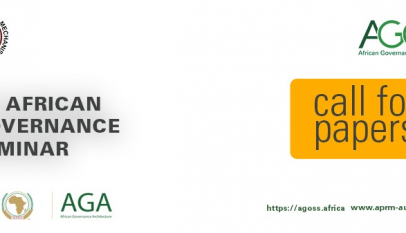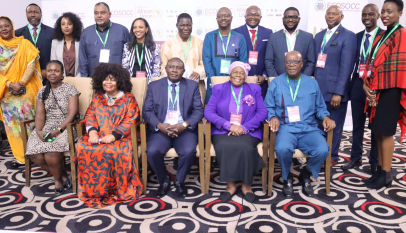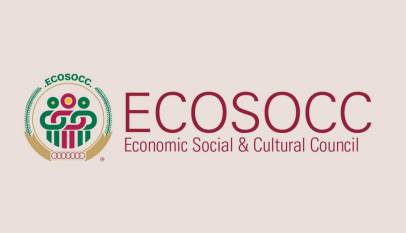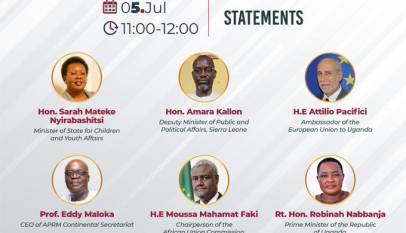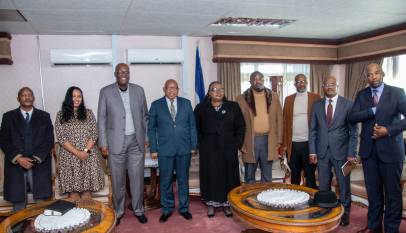ARFSD2020: APRM launches first continental governance assessment for Agenda 2063, SDGs
On the margins of the 6th session of the Africa Sustainable Development Forum, held at Victoria Falls, Zimbabwe, February 24–27, 2020, the African Peer Review Mechanism (APRM) launched its “Report on Assessing Governance Mechanisms for the Implementation of the African Union Agenda 2063 and the 2030 Agenda for Sustainable Development for the ‘Africa We Want’.”
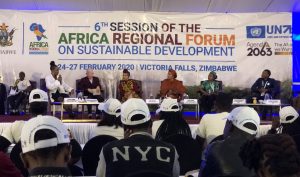
“The Report is the first Report produced by the APRM Continental Secretariat to highlight national governance mechanisms, policies, and approaches of the AU Member States concerning national domestication, monitoring, and evaluation of both agendas’ [Agenda 2063 and Agenda 2030] goals,” Sara Hamouda, APRM’s Agenda 2063 and 2030 Agenda for Sustainable Development (SDGs) expert, told those in attendance at the launch.
Hamouda said the Report focused on different governance mechanisms including institutional coordination tools at the national level, political ownership, and awareness of national bureaucracies of both agendas, including executive legislative and judicial branches. It was developed through a combination of qualitative and quantitative methods including a survey designed to assess amongst others, the role of partnerships and Regional Economic communities (RECs) in the attainment of both agendas and other cross-cutting issues.
Amongst others, the Report’s main findings were that: overall level of awareness on Agenda 2063 was lower than that of Agenda 2030, especially among legislative and judiciary officials; and that integration of SDGs and Agenda 2063 into national development plans was still a challenge and does not necessarily guarantee that countries were ‘walking the talk’ concerning the reporting on the implementation of the said goals or indicators.
The findings of the Report also revealed the role of media in raising awareness on both agendas remains limited and variant from one country to another; and that Africa had serious financial gaps in terms of fulfilling the implementation of Agenda 2063’s aspirations, especially for the regional integration projects, since Africa required approximately an additional US$50 – US$93 billion per annum to bridge its infrastructure gap.
Furthermore, the Report indicated Africa’s private sector’s engagement with both agendas to be moderate; thus, it recommended that African Union and its Member States actively engage the private sector through public-private partnerships. It also revealed gender inequality as one of Africa’s major impediments to achieving both agendas, as 49 African countries were lacking inclusive legislations to protect women from domestic violence, regardless of level of support to women’s political rights and participation, as is the case with Rwanda.
The Report described the Voluntary National Reviews (VNRs) – which have been conducted by more than 35 African countries, between 2016 and 2019, – as practical and efficient approach for monitoring the implementation of Agenda 2030 and Agenda 2063. Consequently, the Report recommended, amongst others, bilateral peer-learning on VNRs preparations between AU Member States; as well as leveraging local governance structures to achieve the agendas at the grassroots.


